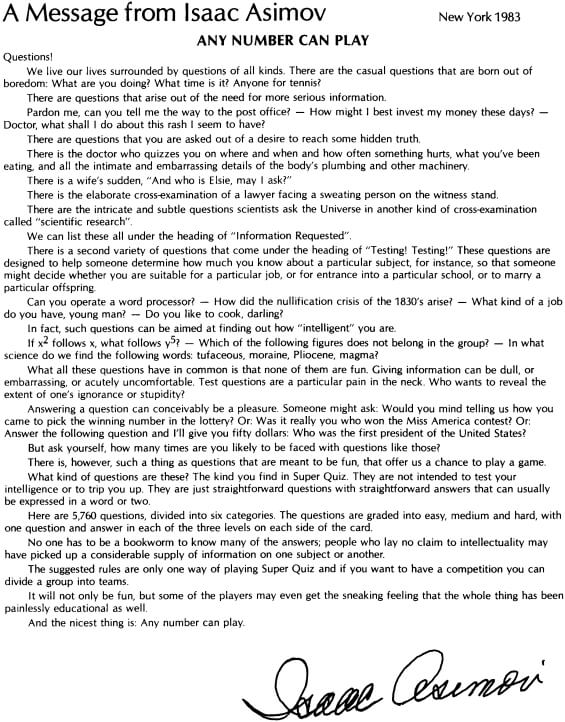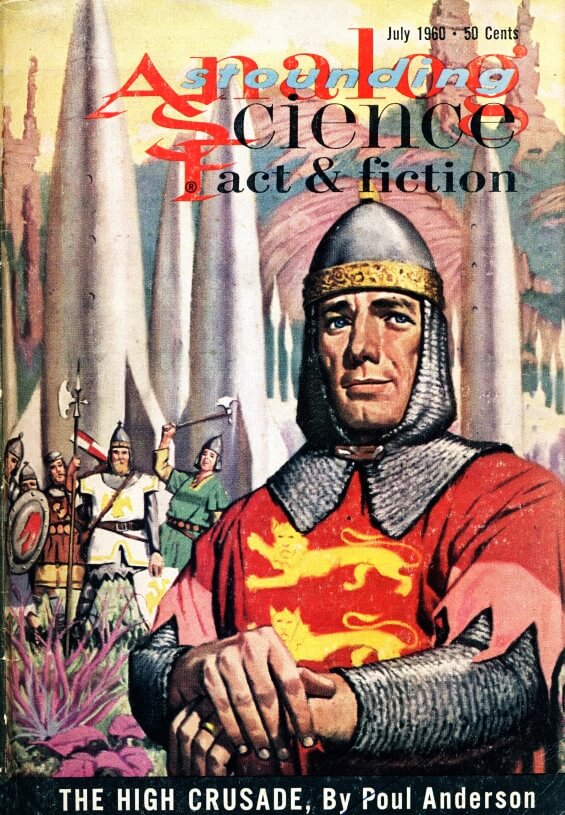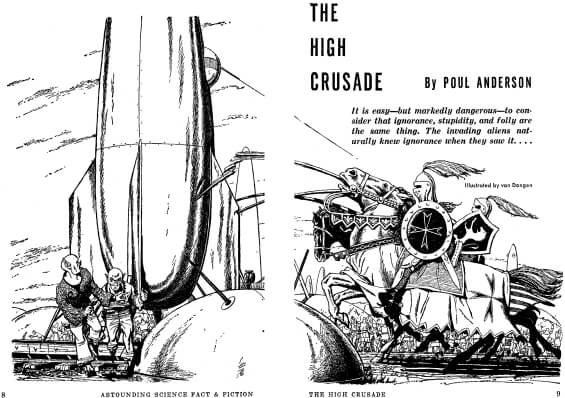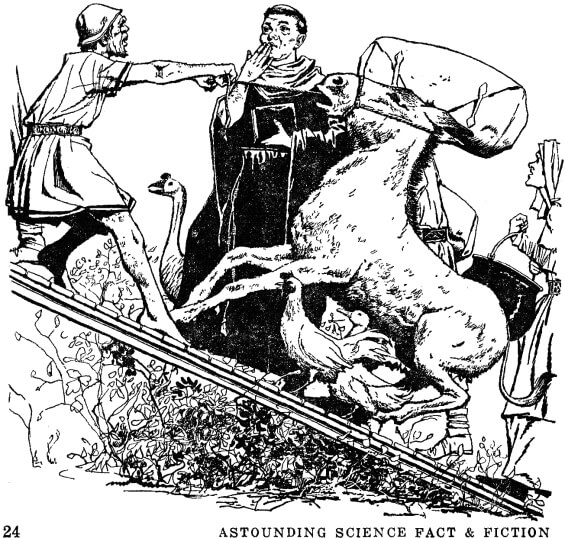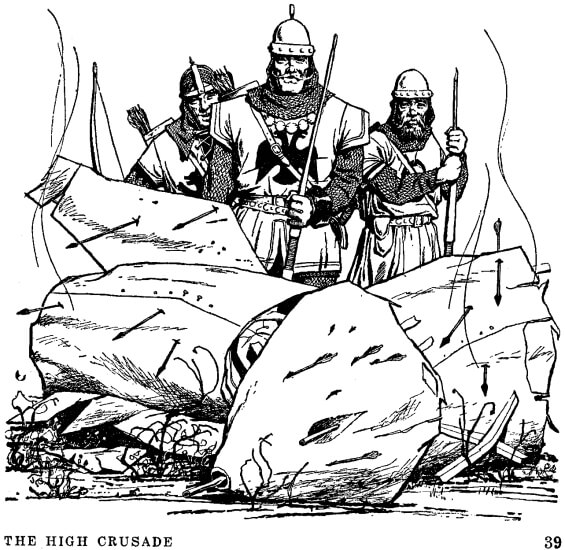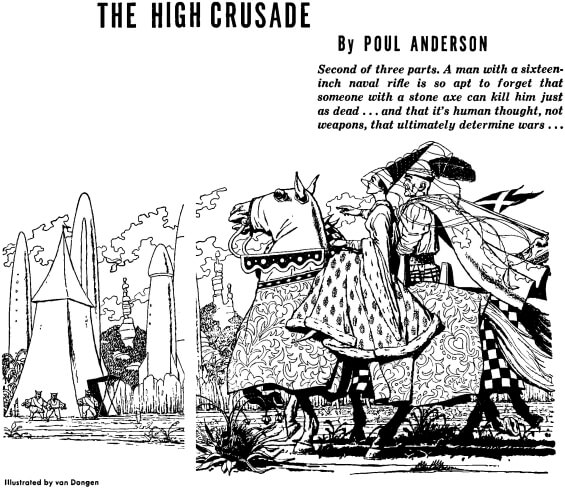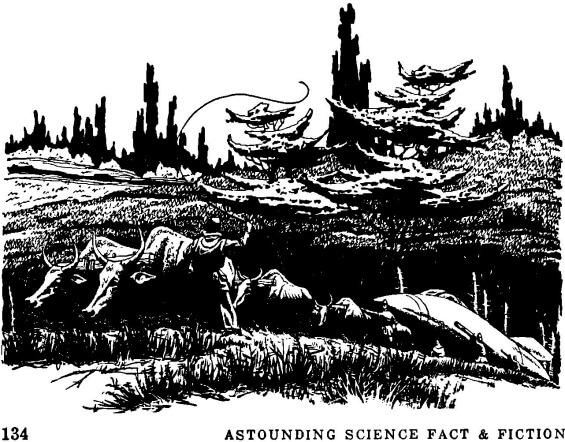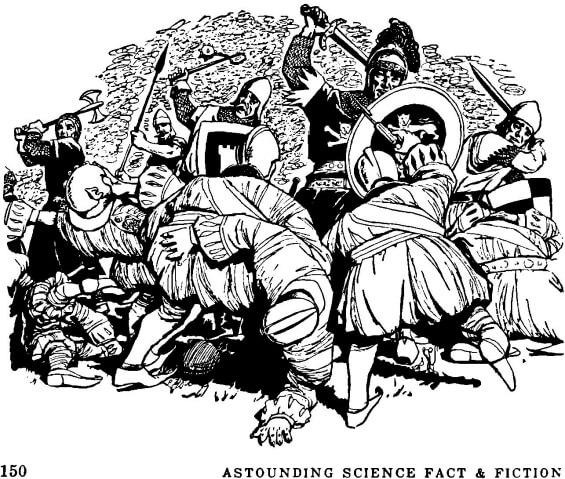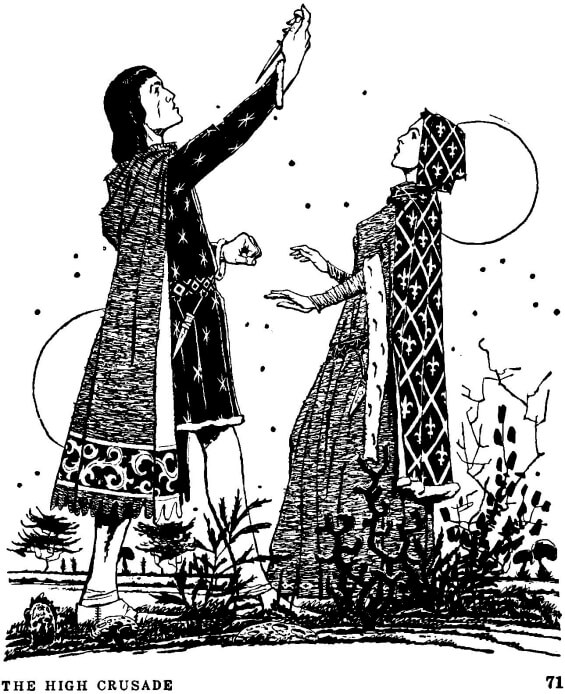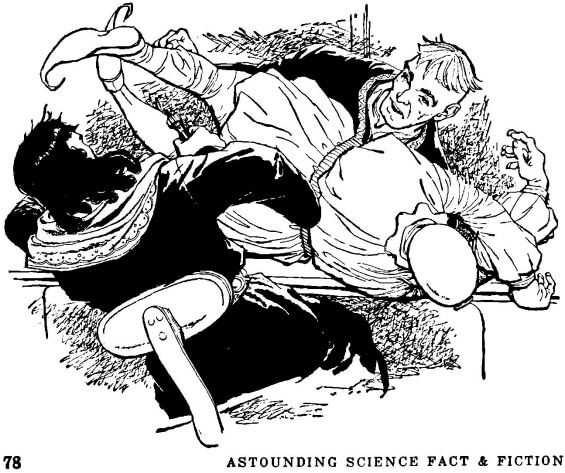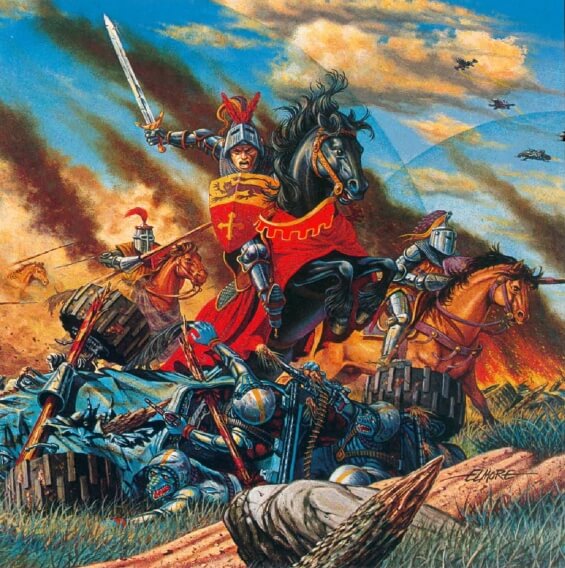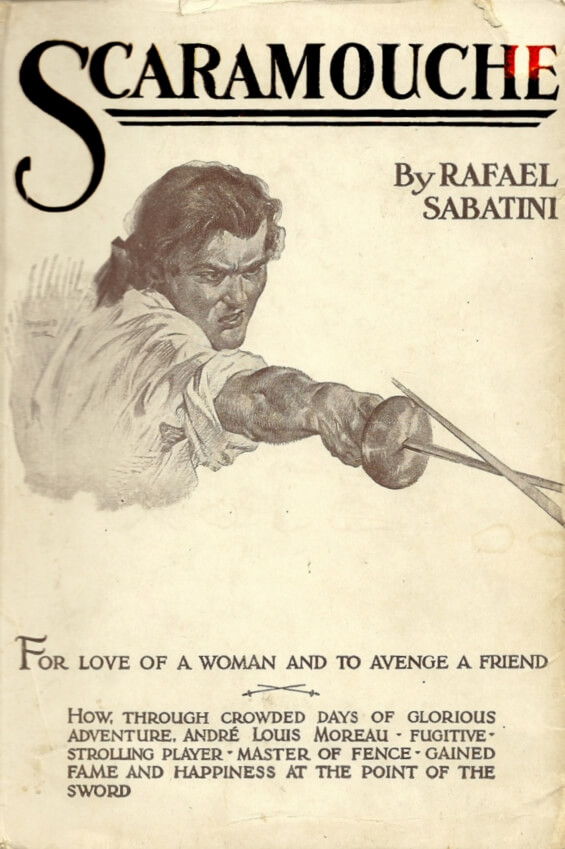
 The SFFaudio Podcast #434 – Jesse, Paul Weimer, Julie Davis and Maissa Bessada talk about The Maltese Falcon by Dashiell Hammet
The SFFaudio Podcast #434 – Jesse, Paul Weimer, Julie Davis and Maissa Bessada talk about The Maltese Falcon by Dashiell Hammet
Talked about on today’s show:
Peter Lorre is not in Dracula, 1929, Black Mask, Sam Spade, The Dain Curse, 1941 movie, Star Trek: The Next Generation: “The Big Goodbye”, Mr Leech, Laurence Tierney, Cyrus Redblock, Sindey Greenstreet, Gutman, Brigid O’Shaughnessy, The Black Bird (1975), Wilmer, The Twilight Zone, Effie Perine, his mom is his secretary, watching for kicks, seeing the bird in colour, Satan Met A Lady (1936), the BBC Saturday Night Theatre adaptation, John Huston, Constantinople became Istanbul, we disagreed!, too right to fool with, we agreed!, Raymond Chandler vs. Dashiell Hammet, same genre, so heavy on description, a Pinkerton man, doing the right thing (for different reasons), hard-boiled to the core, a narrow code, moral problems, big on description and framing scenes, immersed into the world by following the words, seeing the movie in the book, seeing the power, an ‘impatient grimace’ is stage direction, text devoted to description, the opposite of a Philip K. Dick novel, what film does, the scene where Bogart leaves after pretending to be angry, that shaking hand, best screenplay adaptation, unlike Philip Marlowe, who is the homophobe? the author or the character or both or neither?, a perspective, we notice like she does, don’t blame me for being a fake, is there a homophobe?, Brigid is baiting Cairo, the one you couldn’t make, when you’re slapped you’ll take it and like it, you could make a strong case, Jesse was baiting, what Spade is doing, who is the gay man in this story, Wilmer gets the slurs, Joel Cairo, smells of gardenia, fruity, a Greek passport, speculation that Gutman is gay, a gay gang or a queer gang, genial, William Dufris’ narration of the novel, thinking for oneself, a blonde Satan, the teeth thing, a trademark, Humphrey Bogart, another kind of gay man, “the boy” “Wilmer you’re like a son to me, but sons can be replaced. There’s only one Maltese Falcon”, a really strange family, where Julie goes for her gay family information, Wesley Crusher’s mom, touching Picard, a weird family meeting in Picard’s ready room, the Klingon, Data the Pinocchio character, the characters in the holodeck story, the detective friend, all after “the item”, what makes the dynamic so awesome, the highest point in the film, “I spent 17 years looking”, let’s go to Constantinople, Peter Lorre has purpose and meaning, they invite Spade to come along, the movie makers loved, it the audience loved it, and that’s how we get Casablanca, reuniting over and over, three kinds of men, the tough cynical tough guy with a code, the sycophant (the leech), I need you stand with your hands behind your neck, every future episode, that pistol, that is why we love Joel Cairo, the Gutman Sidney Greenstreet is so dynamic, I love talking to a man who loves to talk, the palming of the $1,000 bill, I have to have my games, apologizing while insulting, the key to his relationship with Wilmer, Gutman loves manipulation, find me a character that isn’t manipulating, even Effie is manipulating, everybody is manipulating everybody, what the hell!?, a hetero sort of version of the gay team, Archer’s cheating, there’s a woman out here, she’s a spectacularly bad judge of character, everybody is cynically manipulating everybody else, even the cops are in on it, the Star Trek adaptation, sharing pickled pig feet, not with those caps, here to offer insight, Julie’s going to disagree halfway through, why does this novel work so well, as opposed to any of the other Dashiell Hammett novels, chasing a whatsit, almost identical plots: Ronin (1998), an international cast, San Fransisco, “I need a kiss”, everybody is manipulating each other, the great whatsit, the McGuffin, Mike Spillane a glowing suitcase, the room lights up and you’re face comes off, Pulp Fiction, why does this all resonate, in a world without God we do not have any purpose for existence, the price of the Maltese Falcon goes up and up and up, it could be worth an infinite amount of museum, something worth chasing after, maybe my life can regain a purpose, we get a sense of ‘oh yes, this is something can chase after’, why we love they don’t kill Gutman is they are allowed to go one along with their quest, that god shaped hole, high five, Scott! Scott!, the Flitcraft case in chapter 7, looking at it very obliquely, death is real, not the life he wants, he recreates the life he was living, the proper pronunciation of “Spokane”, what’s the point of the Flitcraft story, Spade telling a story, fleshing Spade out, how Spade wound up in San Fransisco, coming out of the mists, backstories, a ball of snow rolling down a hill, Cairo’s backstory, that’s why he’s a private detective, captured by pirates, lost in France for history, not Mr Wells’ history, a history of humanity, a micro-story,
He knew then that men died at haphazard like that, and lived only while blind chance spared them.
“It was not, primarily, the injustice of it that disturbed him: he accepted that after the first shock. What disturbed him was the discovery that in sensibly ordering his affairs, he had got out of step, not into step, with life. He said he knew before he had got twenty feet from the fallen beam that he would never know peace again until he had adjusted himself to this new glimpse of life. By the time he had eaten his luncheon, he had found his means of adjustment. Life could be ended for him at random by a falling beam: he would change his life at random by simply going away. He loved his family, he said, as much as he supposed was usual, but he knew he was leaving them adequately provided for, and his love for them was not of the sort that would make absence painful.
how perfectly fascinating, she’s always lying, Tacoma, you’re never going to change, she doesn’t get it, I’ve lied so long I don’t know how to do anything else, s specific note, a specific word, thank you for saying “fuck”, this book had censorship, the word “gunsel”, punk, a male prostitute or sex slave, projecting homophobia, a back and forth exchange, in the lobby of a hotel, “the fairy”, New York aren’t you, Baumes’ rush (the 1920s equivalent of the three strikes law), bums and hobos and gunsels, shove off, you can tell G I said so, he never brings his eyes up, he’s almost not there, shove off, performance art, that would go over big on 7th avenue, censorship, sailors, where sailors go to pick up…, to shake loose information, he’s employing homophobic language to provoke, Miskatonic.org Rara Avis (the rare bird), bulletin boards, amateur scholars, he can’t act, a Lux Theatre adaptation, Hollywood actors recreating movies as radio dramas, Edward G. Robinson as Sam Spade, a strange line, You’re the sister of the boy who stood on the burning deck, Casabianca, we don’t know how Casablanca came to be, a great classic out of a filler, a wonderful confluence of events, strange international relations, Vichy France, the Nazis, that great speech, a romantic positive speech, come around to me in 20 years, do you think either one of them loved each other?, his philandering, they’re all angels, what does love leave to them, he’s the hetero version of Cairo, sent to sleep with the Russian, a fun speech (pure bullshit), the ending of Casablanca, this could be the beginning of a beautiful…, Jesse’s independent research, the letter of transit is the Maltese Falcon, they ripped this off!, a solid but unspectacular hit, a work of genius, standing the test of time, you’re principles, she’s worth and so is the boyfriend, cipher, what does that amount to?, not a hill of beans (in this crazy world), here’s my code, I’m not playing the sap for you, low spirits, by late 1941, the cynicism, a comedy by accident, comedy, you’ll forgive me but it’s not good for me to be alone with you, poor Joel Cairo, we can give up you, it’s really striking when they replicate that relationship, Spade made a cigarette, Lauren Bacall, a kind of remake of Casablanca, To Have And Have Not, Bold Venture, Slate Shannon and Sailor Duvall and King Moses, set in Havana, playing to type, ideas vs. character, a story full of ideas – but demonstrated, Hammett leaves you to put it together, what was going on his head?, Red Harvest, even leaner, his style is amazing, he’s super-smart, he doesn’t put genius into the characters, people make movies about his life, fought in both WWI and WWII, evil mercenaries operating for giant evil corporations, Lillian Hellman, HUAC, throw a veteran of two world wars thrown in prison as “unamerican”, The Thin Man, The Adventures Of Sam Spade, talking everybody’s space away, the original Rat Pack, Errol Flynn, Eva Gardner, quite a pack, the den mother, a good to do list for anybody, she’s wise beyond her years, self-possessed, a match for any man, You Must Remember This podcast: Bogie Before Bacall, Bacall After Bogie, so 1945, asking Peter Lorre for dating advice, another really wise guy, better five good years than nothing, go for it you idiot!
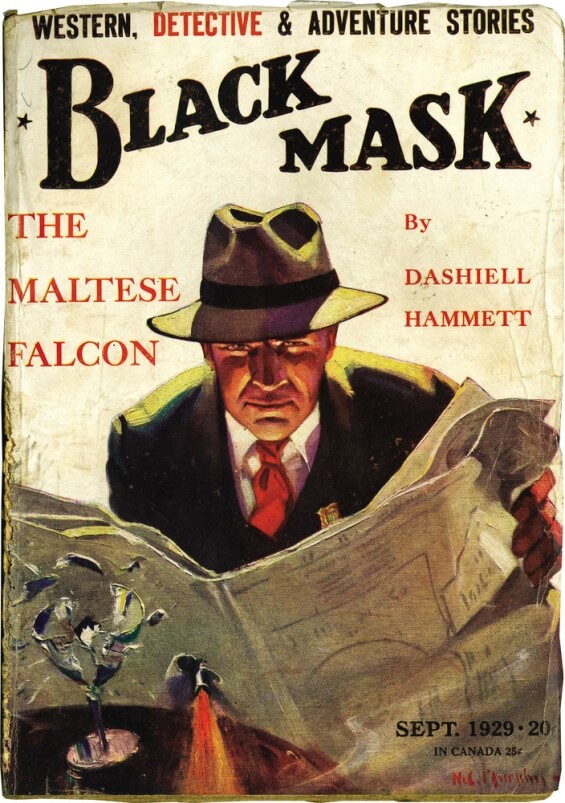

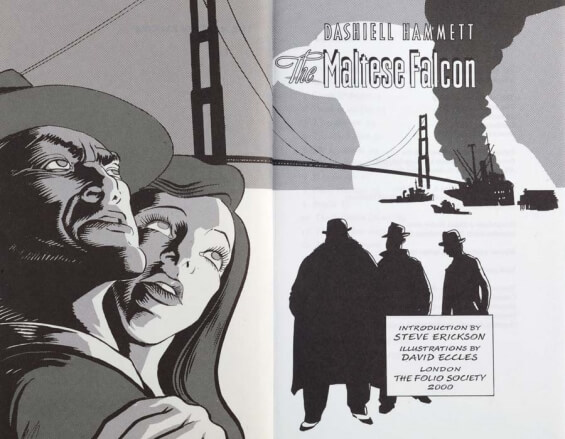

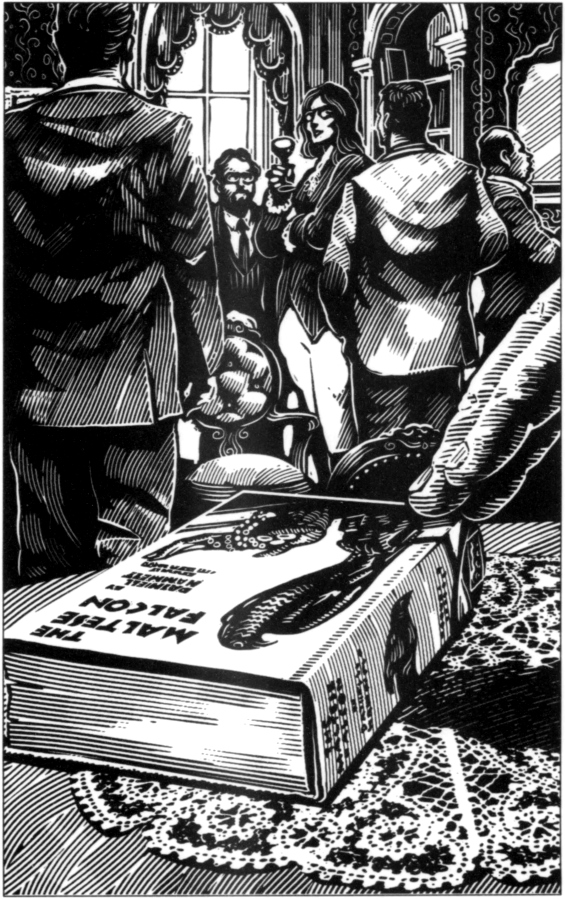
Posted by Jesse Willis

